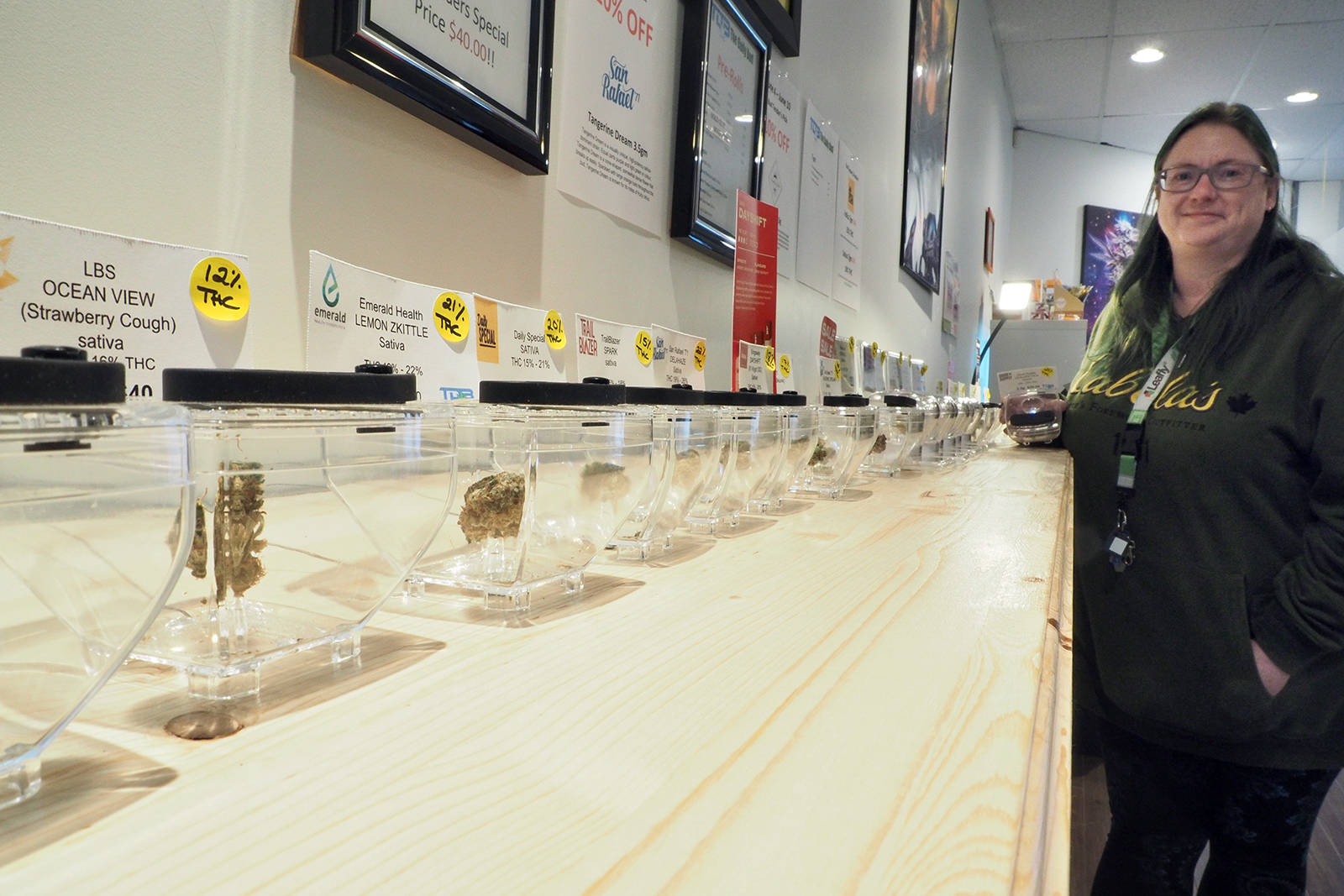The coronavirus pandemic has added to the plethora of hurdles recreational cannabis retailers have been forced to leap to get their businesses up and running.
19+ Cannabis Stores and Mood Cannabis Co. had barely three months to get established when the pandemic struck and Mood Cannabis Co. opened its first store, Mood Metral, in January and its second store, Mood Well, in February. Cannabis and liquor stores were designated as essential services, but some stores closed temporarily to meet government protocols to protect staff and customers against COVID-19 infection.
“There is certainly a fair share of challenges for the business,” said Paul Boudreault, Mood Cannabis manager. “It’s been very important for us to follow the rules and regulations laid out for us by the provincial health and federal health authorities and government to keep our staff and customers safe and comfortable so we can continue to operate.”
Mood Cannabis, Boudreault said, has nevertheless continued building its clientele through the pandemic and he doesn’t see the company changing precautions in the near future without government approval. Acrylic sneeze guards at sales counters are there to stay until at least 2021, there’s a two-customer in-store limit and cash is not accepted.
“Hopefully cash will come back over the summer, but again, we’re just waiting on that go-ahead,” he said.
The Daily Bud Cannabis Shop’s licence approval came in April in the midst of the pandemic. All coronavirus control protocols and equipment had to be in place and approved before the store could open.
Adrienne Dawe, general manager, said business since opening has been slow, but it’s picking up.
“Lots of customers are pretty shy about touching things,” Dawe said. “They always come [through the door] and just look around and we’re, like, ‘It’s OK. You can come in.’”
Prior to recreational marijuana legalization, the store operated as Mid Island Health and Wellness Association’s medicinal marijuana dispensary.
“We weren’t allowed to be medicinal anymore, so we had to change our name and logo and everything,” Dawe said.
Located across the street from Nanaimo Regional General Hospital, the store draws seniors who live in the hospital area and people under 30.
“We are seeing original faces back, but lots of new faces, actually. Lots of new people who have never tried weed before, which is always interesting,” Dawe said.
When it opens its store on Wharf Street in August, Vancouver-based Kiaro, with stores in the Lower Mainland, Victoria and Saskatchewan, will be Nanaimo’s first recreational cannabis chain retailer.
Eleanor Lynch, president of operations, said success for an outside company hinges on connecting with the community.
“I think what Kiaro has done – uniquely, as a company that’s operating cross-provincially – is we’re very good at getting integrated into local, community-based initiatives and so we start that with … having a store manager that’s very plugged in to the community, very active,” Lynch said. “I think it’s key because we really want to become a place that people feel comfortable shopping in. There’s still a lot of stigma about cannabis and there’s still a lot of uncertainty and people don’t know who to trust and where to go.”
Lynch describes Nanaimo’s licensing process as “quite long and arduous” but one that can weed out undesirable applicants, and it provided the opportunity to develop a “partnership” with the municipality and relationships within the community.
“It was challenging. There was a high barrier of entry, but I’m not sure, as a citizen of my own community, whether or not I feel badly about that now, having gone through it and seeing how important it is to really understand the concerns of the community, which often filter through the municipal body,” Lynch said.
Retailers say major producers in Nanaimo, such as Tilray, are an asset and most carry products from them, such as Tilray’s recreational cannabis producer High Park Company.
“I don’t think Tilray, being here, actually affects us business-wise, but at the same time, customers like it when you can tell them this product was grown here in Nanaimo and that this is an Island strain or whatever. People really like that,” Dawe said.
She said the recreational cannabis market will expand, but a big challenge to growing the business is competition from the black market, which offers products still not available legally.
“The market will always be there, but at this point we’re being limited by the government,” Dawe said. “A lot people are looking for stuff that B.C. Cannabis isn’t ready or too scared to do. Shatters, that sort of thing. Concentrates. So assuming that they kind of figure out how to do that, I think it’s going to be a booming industry eventually … until the government’s producing stuff that’s as good and cheaper, I think that’s going to stick around for a long time, the black market.”
Lynch agrees the black market is a challenge, but consumers are recognizing that consumers are seeing the safety, consistency and testing of products shifting to the regulated market and its suppliers.
“Historically you could get really great high-quality product you could trust, but that has really shifted over to the regulated market as more producers from the grey market have moved over as well,” Lynch said. “So we’re seeing that high quality … really trustworthy product showing up.”
photos@nanaimobulletin.com
Like us on Facebook and follow us on Twitter

